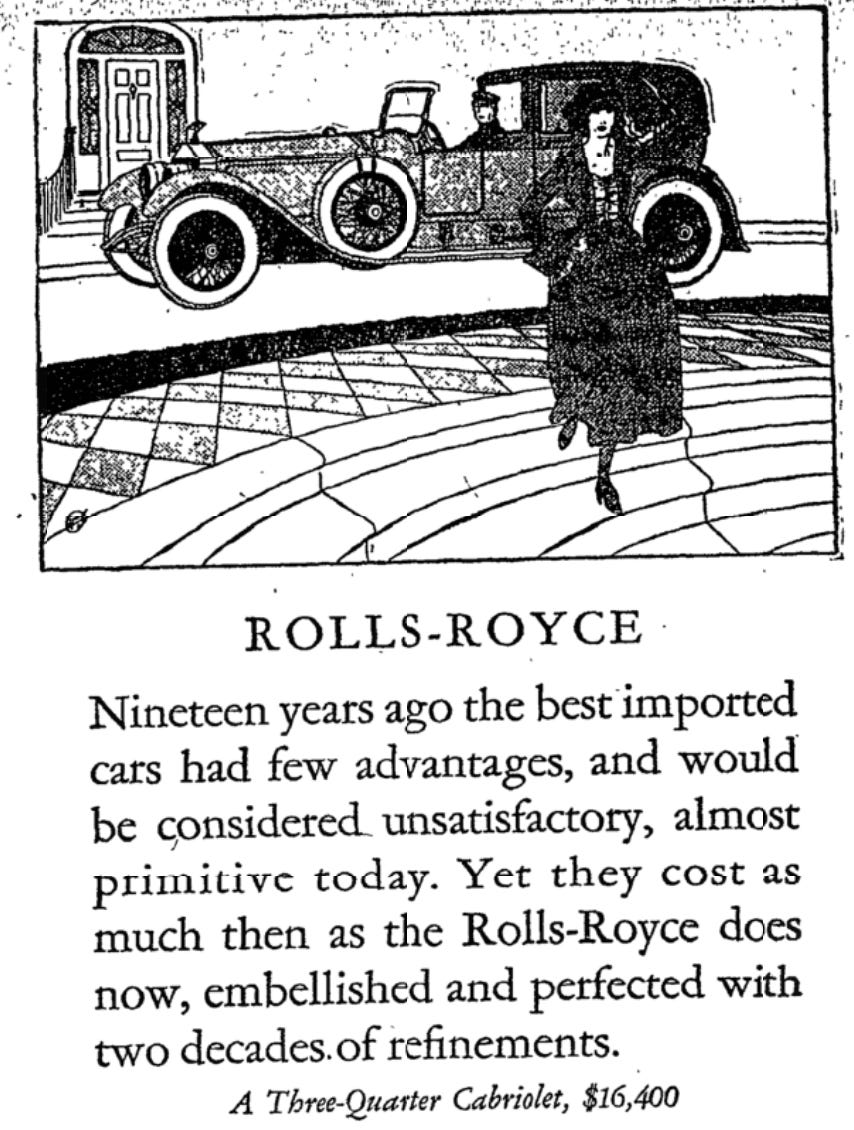Strange Times 179: His Mind Was Blank
Today we have stories of boys going canoeing and getting into trouble. Feign amnesia on…
June 28, 1921
Dry forces in Congress score another victory, passing a bill limiting the amount of beer physicians can prescribe their patients to a single pint every ten days.
At a national medical convention, Dr. Wallace Fritz declares prohibition “a curse,” while Dr. A.H. Werner announces that, “I intend to live to a hundred, and if I like life at that age I think I will continue another fifty years.”
Calling her “obstinate and unruly,” Magistrate Mancuso fines Margaret Danforth $10 for disorderly conduct in Shanley’s restaurant.
Convicted of manslaughter for killing a 9-year-old child while driving an auto, 17-year-old Carl Hendrickson convinces a judge to let him serve his sentence during summer vacation, that his punishment might not interrupt his studies.
The Weather: Thunder showers today; Wednesday cloudy; not much change in temperature; south to west winds.
Today’s vocab word: Pulmotor, an early artificial respirator that apparently worked quite well!
CHICAGO June 27.—Roland Aby, 20 years old, a junior at Northwestern University, was pronounced dead yesterday by Captain Garland of the United States Coast Guard. Thomas Leonard, who was with Aby when their canoe capsized, was also given up for dead, but was revived after long effort.
Today young Aby sat up and related his experiences during the forty-five minutes when the life-savers were working over him with pulmotors.
“There is some sort of life after what we call death,” said Aby. “I can no longer doubt it after my experiences. If you can imagine a world filled with the most gorgeous daubs of futuristic color—purples and golds and crimsons—a world peopled by a fantastic variety of beings, resembling more nearly than anything else Russian ballet dancers, you will have some idea of the hereafter which I experienced yesterday.
“It was a rhythmic world, pulsing constantly to a 1-2-3-4 measure. I am not altogether sure of the nature of that life, if life it be, but there is a continuation of human consciousness after the phenomenon which we call death, though it may be a consciousness of a sort different from any that we know anything about. I am now certain of that.
“The world in which I lived during these forty-five minutes was a world of what we commonly know as the subconscious. It was something like the sensations one experiences after taking gas, only the sensations and impressions were a great deal mmore vivid and more easily recalled.”
That boy died and remembered everything. This boy “attacked” a girl, allegedly, and remembers nothing. This story is so extremely similar to how this would be reported in 2023—right up to the “but he’s a popular athlete!” framing—that it made me very angry. Now it can make you angry too!
Twenty-four hours of intensive investigation into the circumstances that led to the arrest early Sunday morning of James T. Conway, Erasmus Hall High School athlete, have only served to mystify the authorities as to the actions of the boy, who is charged with assault, attempted burglary and carrying a revolver. Young Conway is accused of entering a rear window of the room of Miss Methel Stewart in a young women’s boarding house at 18 Sidney Place, Brooklyn, and after cowing Miss Stewart with a revolver, tying her with towels. Conway has been identified by Policeman Gleason of the Poplar Street Station, the arresting officer, and Miss Stewart. The prisoner sticks unswervingly to a story that his mind was blank during the hours when the alleged crimes were committed. District Attorney Lewis of Kings construes the boy’s stand as one of defiance.
Meanwhile the many friends of the boy in Erasmus Hall have rallied to his support and, to quote Dr. J. Herbert Low, the Principal, the school is behind him to the last scholar. Conway, the winner of more than a dozen athletic medals, is a favorite with his schoolmates.
“I am perfectly amazed at the boy’s arrest,” said Dr. Low. “He is a very fine boy, clean and honest, and I am sure that he is not the sort of a boy who would do the things which he now finds himself charged with. I will say that the school is behind him as a unit.”
One theory advanced is that the boy suffered a mental lapse due to a blow on the head received in a lacross game, or through injuries resulting from sustained exertion in under-water swimming. Conway told of pains in the head that have become frequent of late. James F. Conway, his father, also told of his son’s headaches. To this was added the opinion of Policeman Gleason that Conway appeared dazed when he arrested him in Joralemon Street.
Tells of His Actions
In the office of Warden Honeck in Raymond Street Jail the youthful prisoner told of the happenings of Saturday night and Sunday morning. He spoke in a straight-forward way and without hesitation. His story led up to a certain point and then stopped. Conway did not attempt to evade questions, but his answer to many of them was, “I can’t remember.” He does not drink or smoke, he said.
“I went down to Sheepshead Bay on Saturday night with a friend,” he said. “We got down there in the late afternoon. My friend owns a canoe and so we decided to go out canoeing. We cruised around Oriental Point and then came back to the landing. I am sure that it was about 9 o’clock when we left the bay; it might have been a little later than that, but not much.
“It had been my intention to go to the Y.M.C.A. camp on Staten Island and I had note telling father where I was going. It was because of this that I got off the elevated line at Cumberland Street and walked to the Y.M.C.A. near there. My friend lived near and so he walked with me to the Y. I looked about the building and could find no one who was going to the camp and so I decided to go home instead of going alone to Staten Island.
“I remember that I walked over to State Street. At Third Avenue there was a block party in progress. I remained there some time watching. Then I started for home. After that I don’t remember.”
The boy said that he had never known Miss Stewart and that he did not know any of the other young women who lived in the Sidney Place house.
“Do you remember entering Miss Stewart’s room and after placing a revolver at her head, tying her up with a towel?”
“I do not remember a single thing about that,” said Conway earnestly.
He did not remember, also, that his father’s revolver was in his bag.
“Do you remember your flight from the house across backyard fences and your arrest in Joralemon Street?”
“I don’t remember running away from the house but I do remember being arrested,” he replied. “My arrest is the first thing I can remember after I walked away from the block party. The policeman came up to me and caught hold of my sleeve. ‘Where are you going?’ he asked me. ‘Going home,’ I said. ‘Well, if you are going home why did you just climb over that wall?’ ‘I never got over a wall,’ I said, and I smiled, for the question seemed so utterly foolish to me. Then I became frightened and I did try to break away.”
The journey of the boarding house intruder across fences aroused many of the neighbors whose windows looked out in the yards, and the youth had not disappeared into the window of the Sidney Place house before some one had telephoned the Poplar Street station. That accounted for the appearance of Policeman Gleason, who was running along Joralemon Street about 2:15 A.M. just as Conway, grasping the black bag in which was the revolver, climbed a brick wall near Henry Street and dropped to the grass plot inside the yard rail of one of the houses. Gleason at once arrested him.
Tried to Get Revolver
It was revealed yesterday for the first time that following his arrest the boy had attempted to get his revolver out of the bag he carried and he was only stopped when Gleason put the barrel of his revolver against the prisoner’s side and told him he would stand no fooling. Then, he said, Conway became suddenly quiet and gave up the bag he was carrying.
Young Conway gave injuries to his head received in under-water swimming as a possible cause for his mind becoming a blank. About nine months ago he was injured, he said, and since then he had “terrific” headaches at intervals. Saturday morning, before he left the house, he said, he had pains around his eyes.
Before Magistrate McClosky, in the Adams Street Court, yesterday the prisoner, through James S. Bennett, his attorney, waived examination and was held without bail for the Grand Jury.









